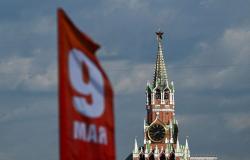80 years ago, on May 8, 1945, the Second World War ended in Europe with the unconditional capitulation of Nazi Germany. Since that date, peace has generally reigned over a large part of the continent, and for most people, the occurrence of an interstate war on European soil had become a distant perspective. But in the past three years, the war of aggression against Ukraine led by Russia in violation of international law has changed the situation, bringing back the spectrum of a large -scale military conflict in Europe.
As shown by the monthly barometer surveys “What Worries The World” published by Ipsos, concerns on this subject tend to gain ground in European countries. In France for example, in April 2025, a quarter of those questioned (25 %) said that a military conflict between states was one of their greatest concerns, up 9 percentage points over one year. Even at the start of the war in Ukraine, in April 2022, this figure was not as high (20 %). In addition to France, fears linked to the occurrence of a conflict also increased in the Netherlands: while 16 % of the Dutch interviewed said they were worried about this in April 2024, this figure increased to 29 % last month (+13 points).
As our infographic indicates, Poles are one of those who are the most worried about it – probably because their country shares a border in the east with Ukraine and to the north with Russia (Enclave de Kaliningrad). Indeed, 39 % of them recently declared that an interstate military conflict was one of their greatest concerns. Conversely, the situation seems very different in Hungary, which displays the level of concerns about this lowest subject of European countries studied (less than 10 % of respondents).








